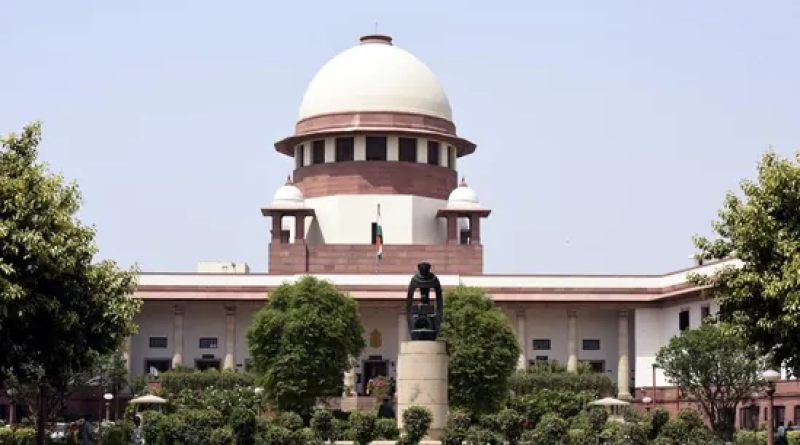“Sedition law under scrutiny: Supreme Court considering major changes”

New Delhi: In a legal twist that could reshape the landscape of sedition laws in India, the Supreme Court is considering a bold move. A batch of petitions challenging the validity of the sedition law, which has been neatly tucked away in Section 124A of the Indian Penal Code (IPC), have skipped the usual five-judge bench and gone straight to a seven-judge Constitution bench. Can. The reason? A proposed law tabled by the government cleverly retains treason but with a different name and a much broader definition.
The Treason Dilemma: A Legal Tango
The apex court’s September judgment set the stage for this legal tango. While the government’s request to postpone the investigation of the penal provision was rejected, the court indicated that the matter should be referred to the Chief Justice of India for consideration by a Constitution bench. Senior lawyer Gopal Sankaranarayanan, representing one of the petitioners, made passionate arguments for the seven-judge bench. Why? To revisit the landmark judgment of Kedarnath Singh vs. State of Bihar of 1962, which had approved the validity of Section 124A.
A proposed law in the headlines
Adding fuel to the legal fire is a new law introduced in the Lok Sabha in August, which is now going to a parliamentary panel. This law not only retains treason but also redrafts it with a more detailed definition. The Indian Judicial Code Bill, 2023, introduces an amended Section 150, which targets separatism and armed insurgency without explicitly mentioning “contempt” or “hatred” against the government.
Catch-22: Re-introduction of treason in 2023
The proposed Section 150 dances around thorny issues, criminalizing acts that “incite or attempt to incite” separatist activities without linking them to incitement or public disorder. A key amendment has removed the penalty option for those convicted of sedition, which provides for life imprisonment or imprisonment up to seven years in addition to the fine.
The Way Forward: Legal Development or Stagnation?
As the legal saga unfolds, the court looks set to confront its own past judgments, questioning the constitutionality of Section 124A in the light of evolving interpretations of constitutional rights. The decision to potentially abandon a five-judge bench and opt for a seven-judge bench reflects the seriousness of the situation. In January, the legal stage is set for an interesting showdown that could redefine the boundaries of sedition law in India.






在这里下载Telegram官网最新版,适用于所有主流操作系统。本站为你提供详细的纸飞机使用指南,包括如何下载、安装以及设置中文界面,帮助你轻松使用这一全球领先的通讯 https://www.telegrambbs.com